Storing laundry detergent in a storage unit
When you consider putting items into a storage unit, the first thing that might come to mind is excess furniture or seasonal decorations. However, you might also wonder about everyday items like laundry detergent. Can these be stored safely away from home? The short answer is yes but with some precautions.
Most laundry detergents are stable, but they need to be kept in their original containers and in a cool, dry place. A climate controlled storage unit (like those offered by HOLD) is ideal to prevent the degradation of the chemicals. So, if you're organising your laundry room and need some extra space, using an indoor storage unit is totally fine.
How to safely store cleaning supplies in a storage unit
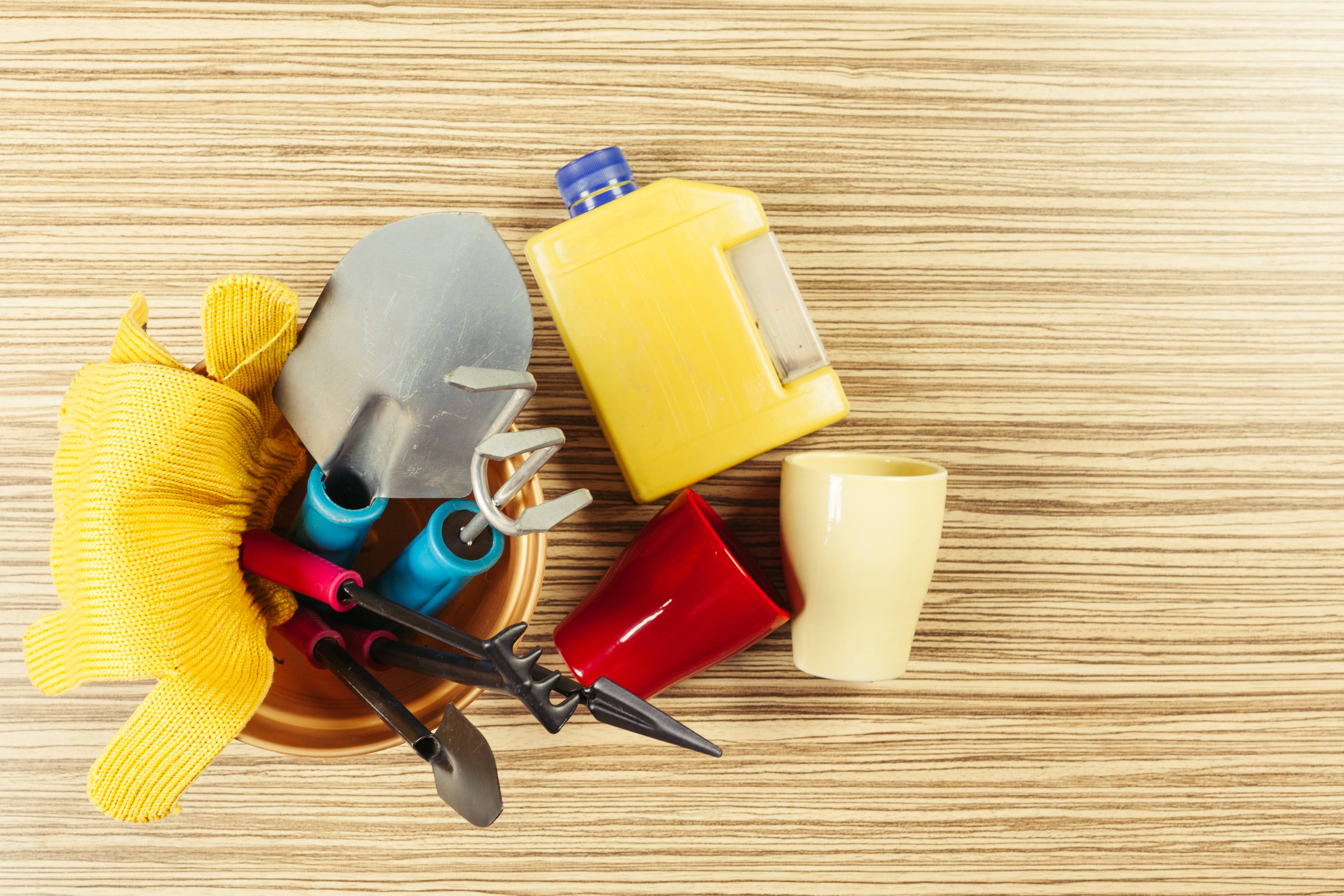
Besides laundry detergent, you may need to store other cleaning supplies. Here, the rule of thumb is to keep these items in their original packaging to avoid leaks and chemical reactions. Ensure that the lids are secure and the storage unit is inaccessible to children or pets.
Items like bleach and ammonia should be kept on separate shelves to prevent dangerous fumes if they were to mix. Here's a step-by-step guide to how to store cleaning supplies in a storage unit:
Check local regulations – Ensure that the storage unit is fully registered and meets local laws and policies. This step prevents potential legal issues and ensures compliance with restrictions on storing items like hazardous materials or weapons.
Keep in original packaging – Store cleaning supplies in their original containers. This prevents leaks and ensures products remain labelled with safety information, avoiding misuse or accidental mixing.
Secure the containers – Ensure all lids are tightly closed to prevent spills. Consider taping lids down or placing containers in a sealed plastic bag for extra protection.
Organise by type – Separate chemicals that could produce dangerous reactions. Store items like bleach and ammonia on separate shelves or in different sections to avoid accidental mixing.
Elevate and secure shelving – Place supplies on sturdy shelves, and secure heavy or potentially dangerous items to prevent tipping or falling.
Access control – Ensure the storage unit is not accessible to children or pets, either by locking the unit or placing supplies out of reach.
Inspect periodically – Regularly check the storage unit for leaks, damage, or changes in conditions. Address any issues immediately to prevent accidents.
What items to avoid storing in an outside storage unit
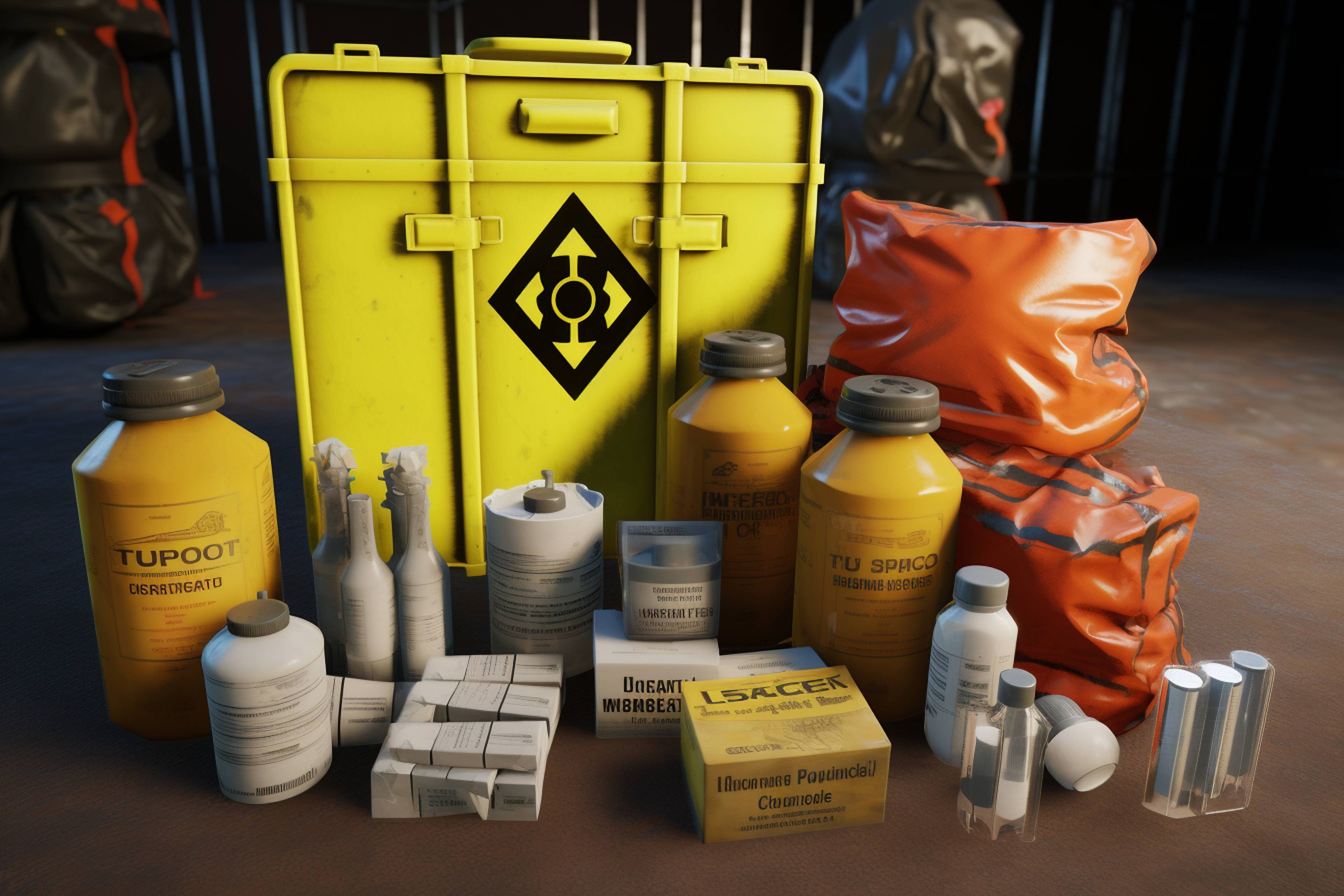
Storage units can often face extreme temperatures, which aren't suitable for all possessions. Hazardous materials that can catch fire, such as paint thinner and nail polish remover, should never be stored. Likewise, food items that attract pests or could spoil should be avoided to maintain the cleanliness and safety of your space. If you do use an outdoor storage unit, ensure it's in operable condition and free from damp. Here's a short list of items to avoid storing in an outdoor unit:
Hazardous materials
Food and perishable items
Valuables
Sensitive electronics
Important documents
Living things
Artwork and collectables
Medicine
Items that could be used as weapons
Ammunition
What can be stored in an indoor unit?
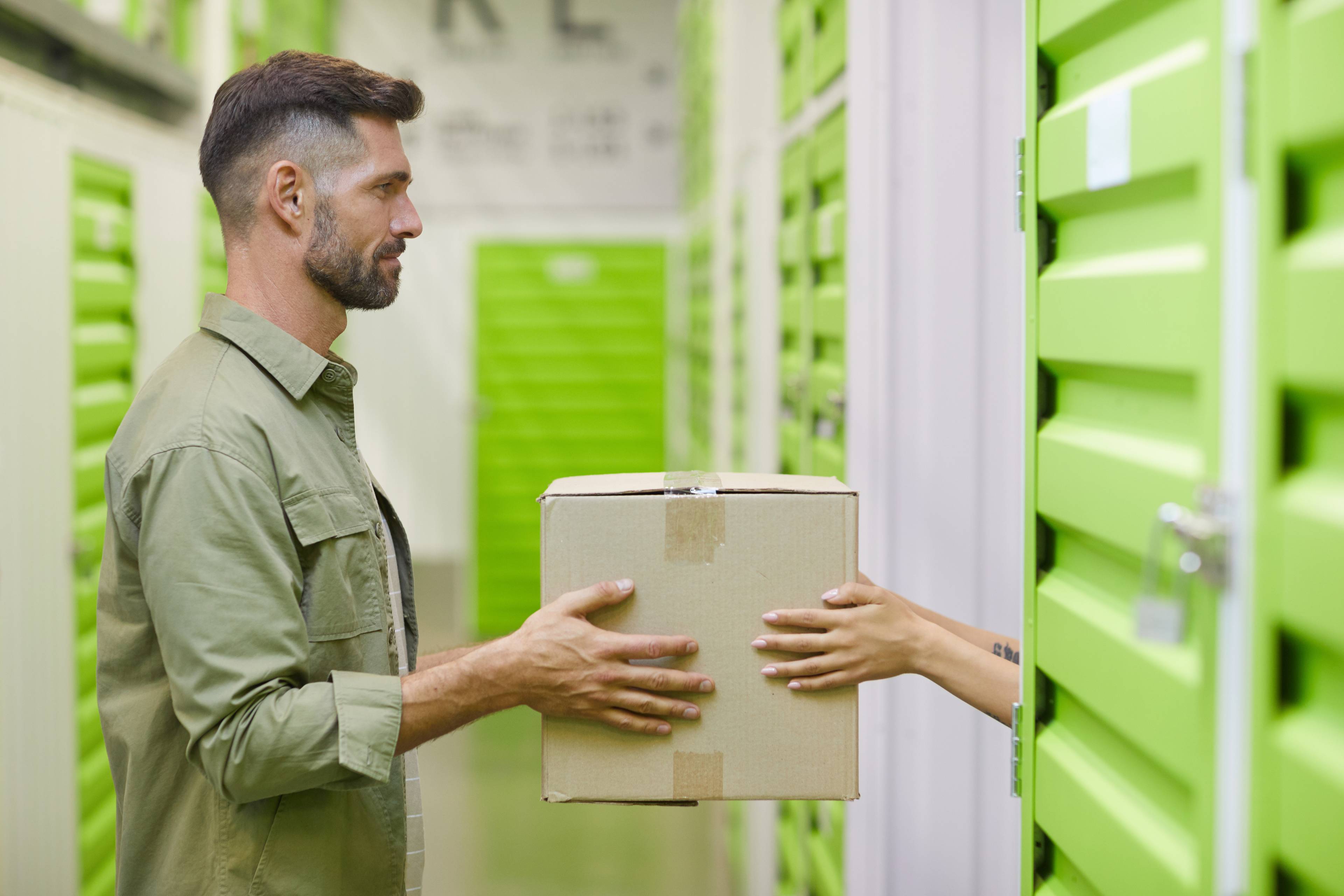
When it comes to what can be stored in a storage unit, the list is endless. Appliances, business stock, seasonal items, precious belongings, etc.. Moreover, unlike outdoor units, professional storage facilities like HOLD offer advanced security and climate secured units. This means that (in most cases) some of the items above can be securely stored:
Items that could be used as weapons – Enhanced security measures and controlled environments mitigate theft, degradation, or accidental discharge risks.
Sensitive electronics – The climate control in indoor units prevents damage from extreme temperatures or humidity, protecting delicate circuits and components.
Medicine – Temperature stability ensures medications maintain efficacy, preventing degradation or spoilage.
Artwork and collectables – Climate control prevents warping, discolouration, or other damage to valuable items, preserving their condition.
Despite this exhaustive list, some items are usually prohibited, so it's important to ensure you know what these are.
What can't you store in an indoor self storage unit?
Beyond chemicals and food, avoid storing anything that requires regular maintenance, fresh air, or a stable environment. This includes gasoline, electronics, wet items that could breed mould, and delicate antiques that might suffer in a non-climate-secure unit. Always assess the risk of damage from temperature fluctuations and humidity before choosing to store valuable or sensitive items. Usually, prohibited items boil down to these three things:
Flammable materials
Living things
Hazardous materials
To ensure you don't accidentally store the above, take through inventory and check with your storage provider beforehand.
Paint storage—Can you keep it in a storage unit?
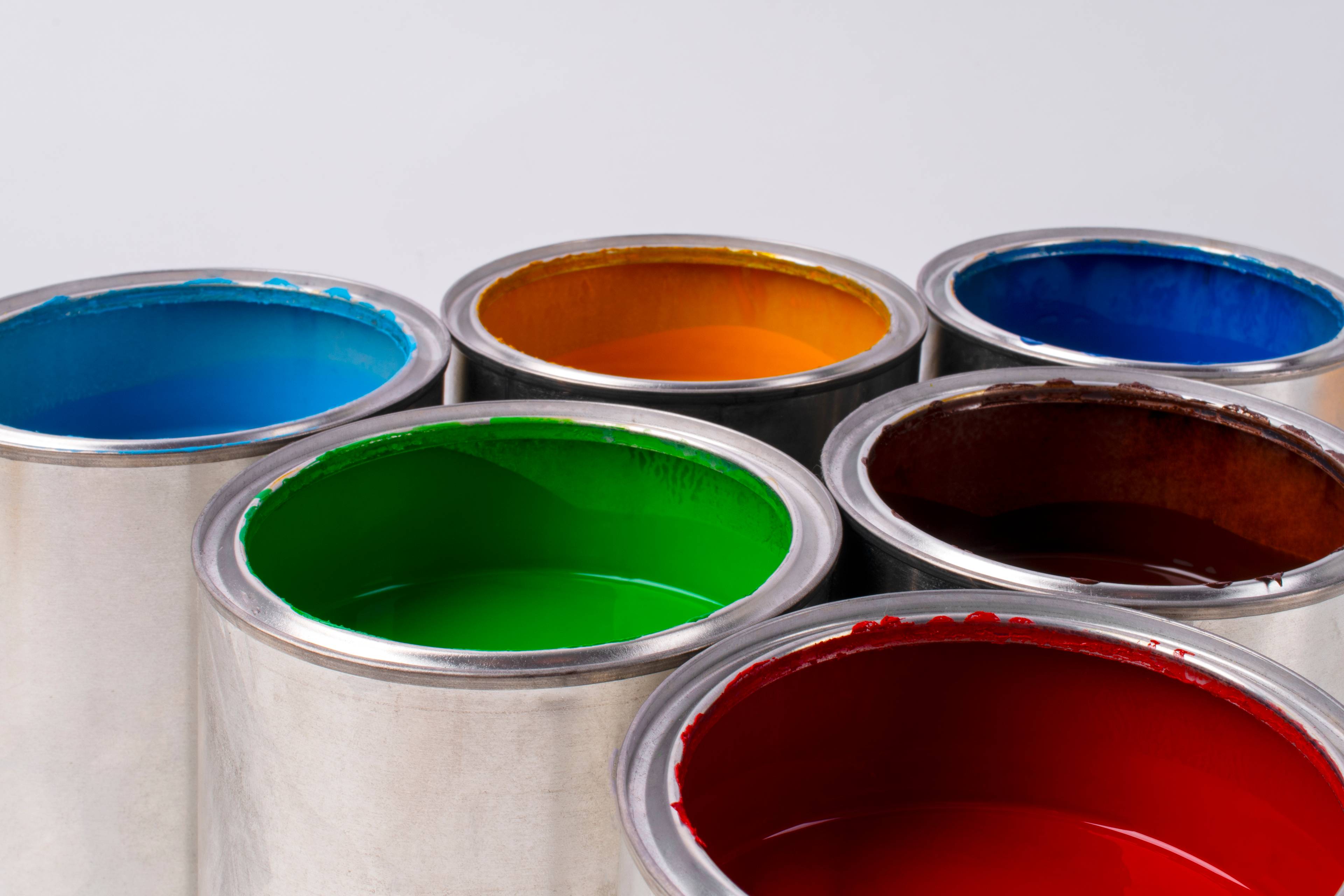
Storing paint in a storage unit can be tricky. While unopened cans of paint are generally safe, they must be kept away from extreme cold or heat to prevent spoilage.
Climate secure units are best for storing paint, ensuring the contents remain in good condition for future use. Remember, any flammable materials like turpentine or paint thinner are prohibited due to their high risk of combustion. Always check with your storage provider to see if paint storage is allowed.
The do's and don'ts of storing items in a storage unit
Here are some quick tips for what to do and what not to do:
Do: Choose a climate controlled storage unit for sensitive items.
Don't: Store hazardous materials that might leak or emit fumes.
Do: Keep all liquids in tightly sealed containers.
Don't: Place food items or perishables that could attract pests.
Do: Use shelves to keep items off the floor and organise space efficiently.
When using a self storage unit, it’s crucial to consider both what you are storing and how you store it. Proper organisation and adherence to safety guidelines ensure your belongings stay safe and in good condition, and your storage facility remains a secure place for all users.
Choose HOLD for all your storage needs
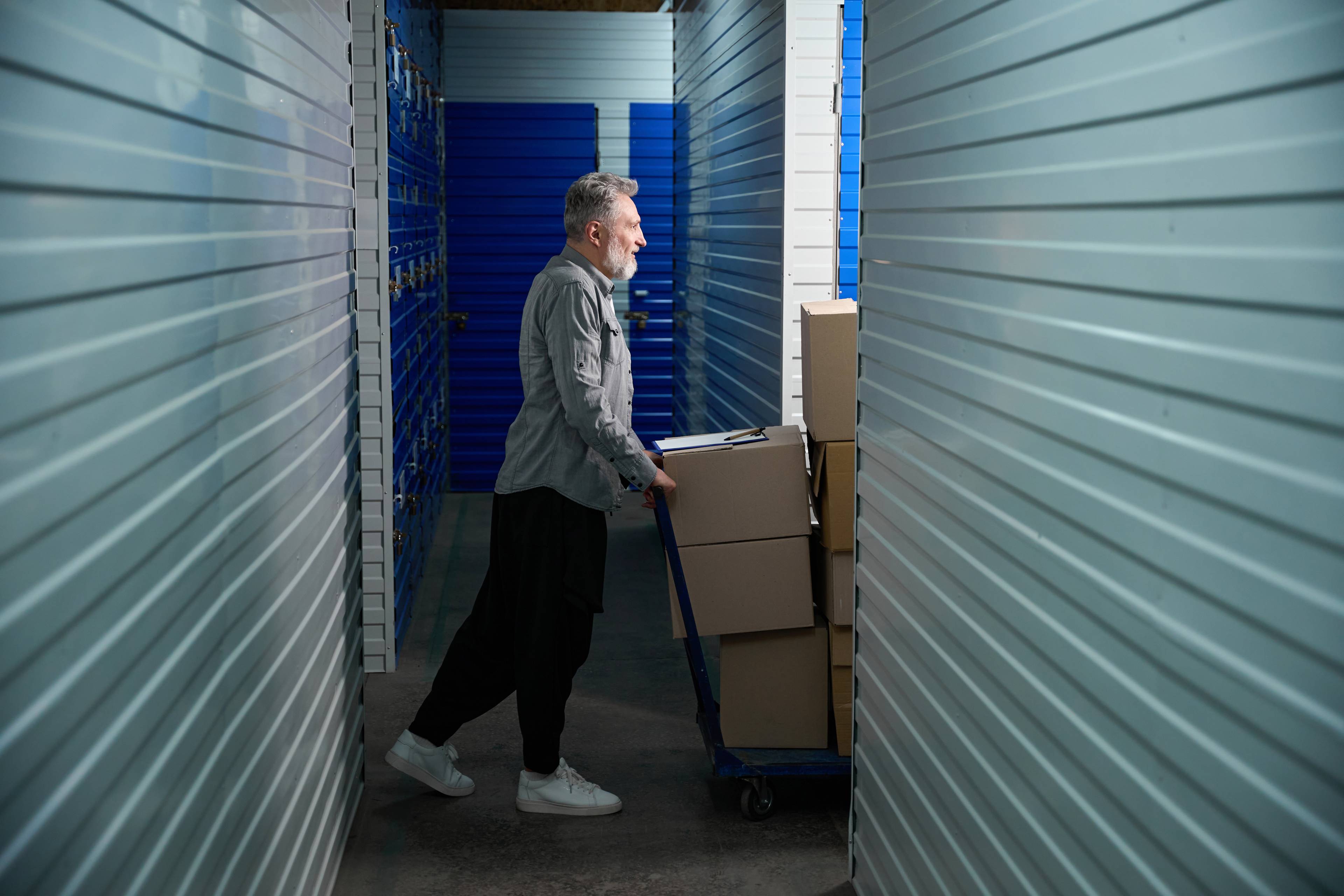
At Hold, we put your needs first. Renovating your house? We have climate secure units in a wide range of sizes perfect for short-term storage. We combine cutting-edge tech and advanced security with a customer-led focus. If you're looking for storage solutions in the London area, get a no-strings offer from HOLD today.
Need a helping hand with your move? Check out our printable moving house checklist.
Frequently Asked Questions
Can you put liquids in a storage unit?
It's generally not recommended, especially for hazardous or perishable liquids. If necessary, ensure they are securely sealed and comply with storage unit policies.
What cannot be stored in a storage unit?
Hazardous materials, perishable goods, weapons, living things, and valuable items such as sensitive electronics or documents should not be stored.
Is it okay to store canned goods in a storage unit?
Canned goods can be stored temporarily if the unit is climate-secure and protected from pests. However, extended storage may risk spoilage or contamination.
What security measures are in place for HOLD business storage units?
At HOLD, advanced security measures are essential for protecting our customer's business assets. The features we offer include:
24-hour CCTV
Individually alarmed units
Secure loading bay
Robust security for individual units
Personal pin codes
Fire detection systems
These features not only provide peace of mind but also protect your business assets from potential threats.
Is it safe to store clothes in a storage unit?
Clothes can be safely stored if the unit is clean, dry, and climate-secure, preventing mould, mildew, or pest infestations. For more insight, check out our article on how to prepare your clothes for self storage.

